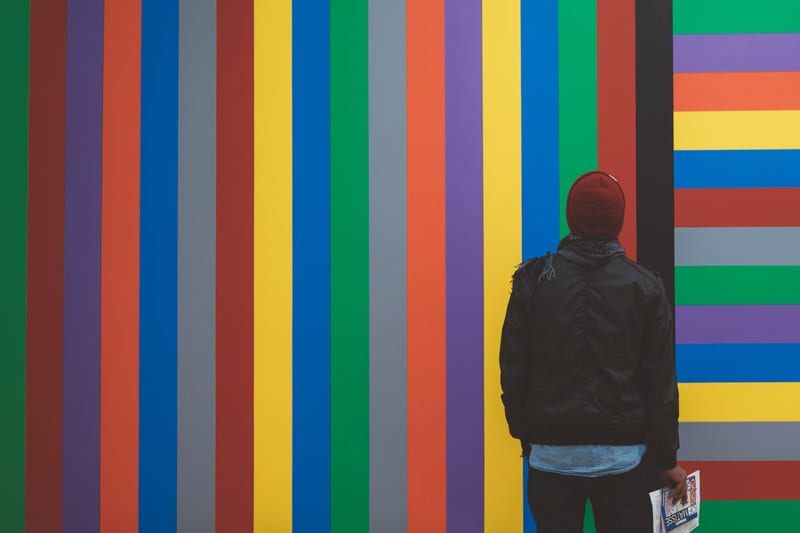Mental health concerns are more of a public conversation than ever before. After surviving a pandemic and readjusting to a new version of normal life, you may want to speak with a professional about things you’re feeling or thinking. Mental health resources for Black, Indigenous, and People of Color (BIPOC) may be more difficult to find in a field that’s 84% comprised of white mental health professionals. But it’s not impossible.
Here are eight accessible resources for BIPOC that you can use to find a counselor who understands your full life experience. These resources will take your past and current race-related stressors into account so you can find a therapist, counselor, or psychiatrist who provides culturally sensitive mental health assistance.
1. Inclusive Therapists
Many people start their journey with Inclusive Therapists because it’s a website that includes licensed professionals of all marginalized identities. They’re one of the best mental health resources for people of color because they understand topics like microaggressions and racial inequality in areas such as economic or social justice rights. Clients can access clinics in their communities or sign up for reduced-fee teletherapy.
2. One Sky Center
Digital resources for BIPOC often leave out American Indian and Alaska Native individuals. One Sky Center serves anyone who comes from those marginalized groups.
Reach out to one of their team members, and they’ll direct you to someone in their expert database to help with your biggest concerns. The center’s treatments are all culturally appropriate so they can serve people from the many diverse tribal communities.
3. National Alliance on Mental Illness (NAMI)
Mental health accessibility for BIPOC has a difficult history because resources vary across the country. The National Alliance on Mental Illness (NAMI) is a national outreach program that attempts to fill in the gaps.
NAMI has a branch explicitly dedicated to Asian American and Pacific Islander (AAPI) communities, consisting of professionals who collectively speak over 100 languages. Their roster of counselors includes people who specialize in non-western medicine, so you can access traditional or Indigenous healing practices to assist your mental health.
It’s crucial for mental health professionals to meet people where they are. Without a group that can speak peoples’ languages or understand their cultural treatments, many wouldn’t seek help in the first place. Experts can continue to set up workplace diversity groups and inclusive programs in schools, so organizations like NAMI become more widely known through group events, presentations, and brochures.
4. StrongHearts Native Helpline
People may not get mental health care because they don’t feel safe leaving home. StrongHearts Native Helpline is there for Native Americans who need to speak with someone about domestic or dating violence in confidential, culturally appropriate ways. Their phone line operates 15 hours each day, but you can also reach them through their website’s 24/7 virtual chat program.
5. National Queer Asian Pacific Islander Alliance (NQAPIA)
The National Queer Asian Pacific Islander Alliance (NQAPIA) is one of the best mental health resources for People of Color because it merges groups that struggle with issues related to race, gender, and sexuality. The organization has a directory of healers and therapists for people who are South Asian, Southeast Asian, Asian American, and Pacific Islanders and identify as part of the LGBTQIA+ community.
When you’re not speaking with your preferred therapist, the group also fights mental health issues by bringing people together for common causes. You could meet up for a march or educational event to make friends and battle the ongoing mental health concerns that grow stronger during periods of loneliness and isolation.
6. American Society of Hispanic Psychiatry
Anyone of LatinX heritage within or outside of the U.S. can find help through the American Society of Hispanic Psychiatry. This organization provides access to psychologists, psychiatrists, and other experts within the mental health field. It also works with activists to promote national policies that would reduce and eliminate racial disparities that cause crises, such as lack of access to mental health care for people of color.
7. Black Mental Health Alliance
The Black Mental Health Alliance includes services for Black people of all ages. This organization connects people with culturally competent mental health experts who use patient-centered approaches to healing. They also have a 24/7 suicide prevention and crisis helpline available for anyone who needs assistance and can’t wait until their next appointment.
8. Melanin & Mental Health Directory
The Melanin & Mental Health Directory is another resource for Black, LatinX, and Hispanic communities to find counselors near them. Even though a directory isn’t the same thing as meeting with an expert in-person, it opens mental health accessibility for BIPOC by giving you the power to find someone who specializes in what you want to address. Check out this directory to find an expert who works near you or offers telehealth appointments for therapy clients.
Mental Health Resources for BIPOC
Although it may seem challenging to find mental health resources for BIPOC, organizations like these make it easier to find a counselor who can assist you along your journey. Use your background and culture as strengths to guide you toward a therapist who serves marginalized groups. They’ll understand you on a deeper level and give you a more effective set of tools to improve your daily life.
If you or someone you know experiences mental health issues, it is important to seek help from a qualified professional. Our Resource Specialist can help you find expert mental health resources to recover in your community. Contact us now for more information on this free service to our users.
About the Author: Ginger Abbot is a lifestyle and learning writer who talks about mental health, career development, and personal growth. Read more of her work on Classrooms, where she serves as Editor and contributing writer.
In 2008 the United States government designated July as Bebe Moore Campbell National Minority Mental Health Awareness Month “to enhance public awareness of mental illness …. among minorities.”
Bebe Moore Campbell was an American author and mental health advocate who wrote works of fiction, nonfiction, and children’s literature about the harmful effects of racism and the mental health impacts on those affected.
Each July, www.rtor.org and its sponsor Laurel House, Inc. honor the legacy of Bebe Moore Campbell. We believe in using language that puts people first and emphasizes their individuality and unique contributions rather than their health or demographic status. Just as we do not refer to people living with schizophrenia as “schizophrenics,” we avoid terms such as “minority” and “marginalized” when referring to BIPOC (Black, Indigenous, and People of Color) and BIPOC Mental Health Month.
Please join us in recognizing the unique struggles BIPOC face and bringing awareness to the need for adequate, accessible, culturally relevant mental health treatment, care, and services.
Our recent blog post, 8 Accessible Mental Health Resources for Black, Indigenous, and People of Color (BIPOC), contains several links to online resources promoting the emotional wellbeing and access to mental health care for these communities.
www.rtor.org and Laurel House are committed to the advancement of racial equity and social justice and to making mental health services available to all.
Photo by Mario Gogh on Unsplash
The opinions and views expressed in any guest blog post do not necessarily reflect those of www.rtor.org or its sponsor, Laurel House, Inc. The author and www.rtor.org have no affiliations with any products or services mentioned in the article or linked to therein. Guest Authors may have affiliations to products mentioned or linked to in their author bios.
Recommended for You
- Why Eating Disorders in Men Are Often Missed - July 3, 2025
- No More Silence: The Opioid Epidemic’s Alarming Impact on Women - June 30, 2025
- The Hidden Impact of Repressed Memories on Mental Health and How to Heal - June 26, 2025





